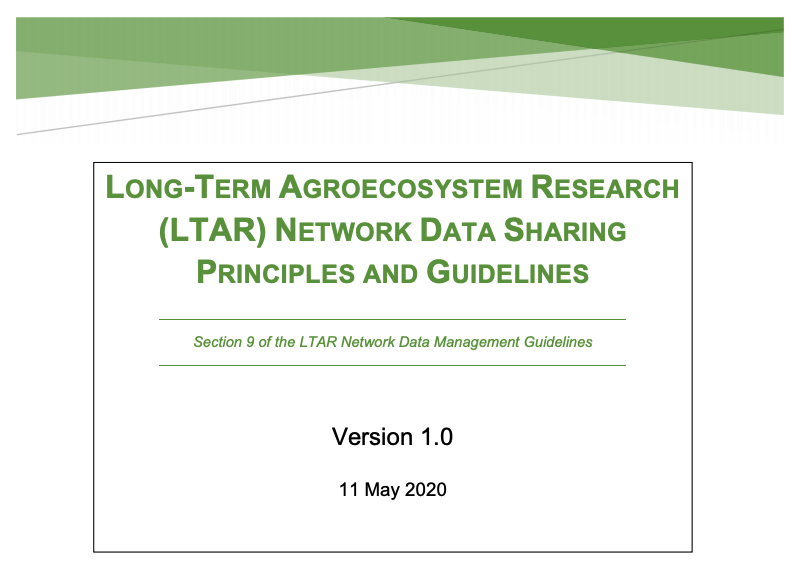Data Guidance
Data Sharing Principles and Guidelines
Purpose
The Long-Term Agroecosystem Research (LTAR) network is a research network grounded in experimentation and observation charged with developing a national roadmap for the sustainable intensification of agricultural production. Thus, this document describes LTAR network data sharing principles and guidelines with the intent that all LTAR data will be available for research collaboration and the development of agroecosystem management recommendations and education. The results produced by the LTAR network will be used to inform policy, serving as a legacy of long-term agroecosystem observations for future generations.
The principles and guidelines are intended to:
- Establish data sharing principles for the LTAR network;
- Facilitate data sharing among LTAR network and non-network scientists, supporting cross-site and multi-site scientific investigations, as well as the LTAR common experiments;
- Satisfy USDA policy to make available to the scientific community and to the public all digital scientific data arising from unclassified research and programs funded wholly or in part by USDA;
- Clarify expectations for authorship and intellectual property rights; and
- Facilitate development of enhanced data products and data user interface technologies that automate data management processes as well as facilitate comparison of decision management outcomes.
Download PDF document
ABOUT LTAR
The USDA Agricultural Research Service (ARS) Long-Term Agroecosystem Research network consists of 18 Federal and university agricultural research sites with an average of over 50 years of history. The goal of this research network is to ensure sustained crop and livestock production and ecosystem services from agroecosystems, and to forecast and verify the effects of environmental trends, public policies, and emerging technologies.

